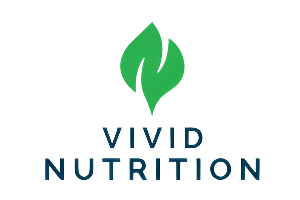
Exploring the Potential of Lion's Mane for ADHD
Share
Exploring the Potential of Lion's Mane for ADHD
In the quest for alternative approaches to managing attention-related challenges, Lion's Mane mushroom has caught the attention of researchers and individuals alike. This article delves into the intriguing question: Can Lion's Mane treat ADHD? We'll explore the existing studies and scientific perspectives surrounding the potential benefits of Lion's Mane for attention-related issues.
Understanding ADHD: A Complex Neurodevelopmental Condition:
Attention-Deficit/Hyperactivity Disorder (ADHD) is a neurodevelopmental condition characterized by persistent patterns of inattention, hyperactivity, and impulsivity. Traditional treatments often include stimulant medications, but the search for alternative, natural options has led to interest in Lion's Mane.
Potential Cognitive Benefits: Insights from Scientific Studies:
While research on Lion's Mane and ADHD is still in its early stages, studies exploring the cognitive benefits of Lion's Mane provide intriguing insights. Some studies suggest that Lion's Mane may stimulate the production of Nerve Growth Factor (NGF), a factor linked to nerve cell health and potential cognitive enhancement.
Neurological Support: Lion's Mane and Nerve Growth Factor (NGF):
Lion's Mane contains compounds like hericenones and erinacines, which are believed to support nerve regeneration and the production of NGF. NGF plays a crucial role in the development and function of nerve cells, potentially offering neurological support that could be beneficial for individuals with ADHD.
Balancing Neurotransmitters: A Potential Mechanism:
ADHD is often associated with imbalances in neurotransmitters like dopamine and norepinephrine. Some compounds found in Lion's Mane may have a modulating effect on these neurotransmitters, potentially contributing to a more balanced neurochemical environment.
Individual Responses and Considerations: A Nuanced Approach:
It's important to note that individual responses to Lion's Mane can vary. While some studies show promise, more comprehensive research is needed to establish the efficacy of Lion's Mane specifically for ADHD. Additionally, any consideration of Lion's Mane as a supplement for ADHD should be done in consultation with healthcare professionals.
Exploring a Promising Frontier of Lion’s Mane:
In conclusion, while research on Lion's Mane and ADHD is in its early stages, the potential cognitive benefits, neurological support, and modulating effects on neurotransmitters make it an intriguing frontier for exploration. As science delves deeper into the interaction between Lion's Mane and ADHD, individuals and healthcare providers alike may find valuable insights into natural approaches for managing attention-related challenges.
In the quest for alternative approaches to managing attention-related challenges, Lion's Mane mushroom has caught the attention of researchers and individuals alike. This article delves into the intriguing question: Can Lion's Mane treat ADHD? We'll explore the existing studies and scientific perspectives surrounding the potential benefits of Lion's Mane for attention-related issues.
Understanding ADHD: A Complex Neurodevelopmental Condition:
Attention-Deficit/Hyperactivity Disorder (ADHD) is a neurodevelopmental condition characterized by persistent patterns of inattention, hyperactivity, and impulsivity. Traditional treatments often include stimulant medications, but the search for alternative, natural options has led to interest in Lion's Mane.
Potential Cognitive Benefits: Insights from Scientific Studies:
While research on Lion's Mane and ADHD is still in its early stages, studies exploring the cognitive benefits of Lion's Mane provide intriguing insights. Some studies suggest that Lion's Mane may stimulate the production of Nerve Growth Factor (NGF), a factor linked to nerve cell health and potential cognitive enhancement.
Neurological Support: Lion's Mane and Nerve Growth Factor (NGF):
Lion's Mane contains compounds like hericenones and erinacines, which are believed to support nerve regeneration and the production of NGF. NGF plays a crucial role in the development and function of nerve cells, potentially offering neurological support that could be beneficial for individuals with ADHD.
Balancing Neurotransmitters: A Potential Mechanism:
ADHD is often associated with imbalances in neurotransmitters like dopamine and norepinephrine. Some compounds found in Lion's Mane may have a modulating effect on these neurotransmitters, potentially contributing to a more balanced neurochemical environment.
Individual Responses and Considerations: A Nuanced Approach:
It's important to note that individual responses to Lion's Mane can vary. While some studies show promise, more comprehensive research is needed to establish the efficacy of Lion's Mane specifically for ADHD. Additionally, any consideration of Lion's Mane as a supplement for ADHD should be done in consultation with healthcare professionals.
Exploring a Promising Frontier of Lion’s Mane:
In conclusion, while research on Lion's Mane and ADHD is in its early stages, the potential cognitive benefits, neurological support, and modulating effects on neurotransmitters make it an intriguing frontier for exploration. As science delves deeper into the interaction between Lion's Mane and ADHD, individuals and healthcare providers alike may find valuable insights into natural approaches for managing attention-related challenges.
